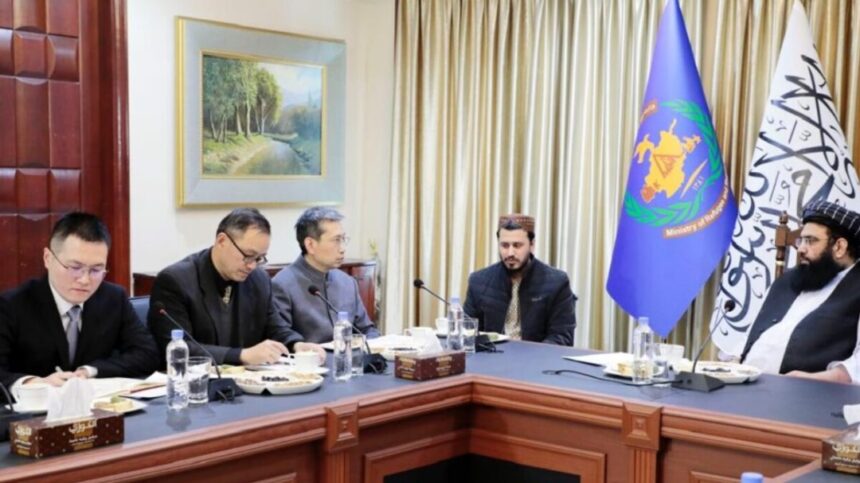RASC News Agency: Zhao Xing, China’s ambassador to Kabul, has reaffirmed Beijing’s commitment to sustaining economic cooperation with Afghanistan under Taliban rule. During a meeting with Mawlawi Abdul Kabir, the Taliban’s Minister for Refugees and Repatriation, Xing emphasized that China remains dedicated to supporting Afghanistan’s economic development. The ministry announced on Wednesday, February 26, that China has initiated plans to construct residential complexes for returning refugees and displaced persons. The Chinese envoy also underscored the importance of diplomatic relations between Beijing and the Taliban. In response, Mawlawi Abdul Kabir highlighted the Taliban’s reliance on international humanitarian organizations to facilitate the construction of housing for refugees.
Over the past three years, China has deepened its economic and political engagement with the Taliban. Beijing has provided consistent support to the group across various sectors and has significantly expanded its presence in Afghanistan’s lucrative mining industry. Reports indicate that China has secured control over key mineral resources and is actively involved in their extraction and export. The Taliban’s close relationship with China remains one of the most perplexing geopolitical developments in recent history. While Beijing imposes stringent restrictions on religious practices including the systematic suppression of its own Muslim population it has cultivated a strategic partnership with a hardline Islamist movement. Analysts attribute this unlikely alliance primarily to economic interests and China’s access to Afghanistan’s vast mineral wealth.
Moreover, the Taliban and China’s Communist government share an underlying commonality: both operate as authoritarian regimes with absolute control over their populations. While the Taliban enforces a rigid religious and ethnonationalist doctrine, China’s governance is rooted in secular ideological authoritarianism. Despite their ideological differences, both entities prioritize power consolidation over civil liberties, making their cooperation a calculated convergence of strategic interests.






